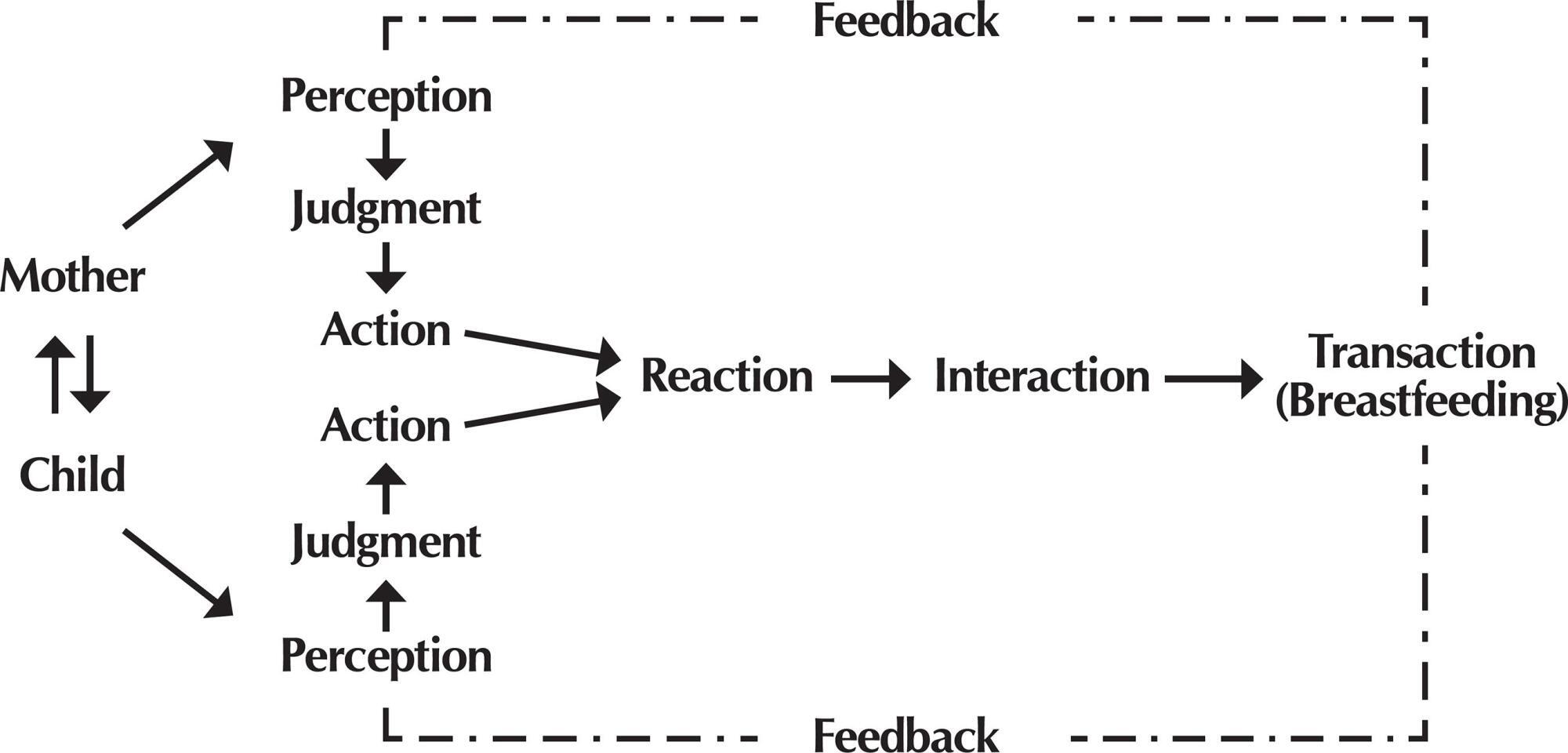-
RESEARCH
Critical defining characteristics for nursing diagnosis about ineffective breastfeeding
Revista Brasileira de Enfermagem. 2018;71(2):314-321
01-01-2018
Resumo
RESEARCHCritical defining characteristics for nursing diagnosis about ineffective breastfeeding
Revista Brasileira de Enfermagem. 2018;71(2):314-321
01-01-2018DOI 10.1590/0034-7167-2016-0549
Visualizações0Ver maisABSTRACT
Objective:
To investigate the Nursing diagnostic accuracy measures and to propose a model to use defining characteristics in order to judge the nursing diagnosis of ineffective breastfeeding.
Method:
Cross-sectional study with a sample of 73 binomials mom-child hospitalized in a maternity ward of an University Hospital, from July to August of 2014.
Results:
The diagnostic predominance rate was 58.9%. The characteristics that best meet the needs of logistic regression model were: discontinuance of breast sucking; infant's inability of seizing the areola-nipple region correctly; infant's crying one hour after breastfeeding and inappropriate milk supply perceived.
Conclusion:
Breastfeeding process is dynamic; diagnostic judgement may suffer some changes according to the time data are collected; the defining characteristics are the best predictors if associated with models and rules of use.
-
RESEARCH
Breastfeeding self-efficacy among blind mothers
Revista Brasileira de Enfermagem. 2018;71(6):2969-2973
01-01-2018
Resumo
RESEARCHBreastfeeding self-efficacy among blind mothers
Revista Brasileira de Enfermagem. 2018;71(6):2969-2973
01-01-2018DOI 10.1590/0034-7167-2017-0942
Visualizações0Ver maisABSTRACT
Objective:
To evaluate breastfeeding self-efficacy among blind mothers.
Method:
This is a descriptive and exploratory research carried out in Fortaleza-Ceara, with ten blind mothers. Data were collected through an interview with the application of a socioeconomic and obstetric questionnaire and the Breastfeeding Self-Efficacy Scale – Short Form.
Results:
The majority of blind mothers presented high breastfeeding self-efficacy, but there were also mothers with low breastfeeding self-efficacy.
Conclusion:
It is necessary to follow-up mothers throughout the entire breastfeeding period to maintain or improve breastfeeding self-efficacy in this specific public.
-
RESEARCH
Interactive Theory of Breastfeeding: creation and application of a middle-range theory
Revista Brasileira de Enfermagem. 2017;70(6):1191-1198
01-01-2017
Resumo
RESEARCHInteractive Theory of Breastfeeding: creation and application of a middle-range theory
Revista Brasileira de Enfermagem. 2017;70(6):1191-1198
01-01-2017DOI 10.1590/0034-7167-2016-0523
Visualizações0Ver maisABSTRACT
Objective:
To describe a breastfeeding theory based on King's Conceptual System.
Method:
Theoretical study that used analysis of concept, assertion synthesis, and derivation of theory for the creation of a new theory.
Results:
King's system components were associated with elements of the breastfeeding process and a middle-range theory was created, which describes, explains, predicts, and prescribes breastfeeding by analyzing factors that precede and affect it, as well as their consequences on the breastfeeding process.
Conclusion:
The Breastfeeding Interactive Model is abstract enough to be applied in different social, cultural, political, and economic contexts, because it conceptualizes breastfeeding in systemic, dynamic, and procedural aspects. Based on a conceptual model of nursing, it contributes to the scientific construction of the subject; however it can also potentially be applied by other professionals involved in breastfeeding assistance.

-
PESQUISA
The nurse faced with early weaning in child nursing consultations
Revista Brasileira de Enfermagem. 2015;68(5):869-875
01-01-2015
Resumo
PESQUISAThe nurse faced with early weaning in child nursing consultations
Revista Brasileira de Enfermagem. 2015;68(5):869-875
01-01-2015DOI 10.1590/0034-7167.2015680515i
Visualizações0Ver maisABSTRACT
Objective:
analyze the role of the nurse regarding early weaning in children younger than 6 months old.
Method:
qualitative and descriptive study. The nurses who performed the study did nursing consultation to children programmatically in family health units in Cuiabá - Mato Grosso. Data were collected in January and February 2012, through participant observation of nursing consultations. For data analysis, content analysis was used.
Results:
that nurses, in most cases, used appropriate strategies for the management of common problems in breastfeeding, although some behaviors have not yet proven scientifi c evidence about the benefi ts and/or damage to its practice.
Conclusion:
nurses addressed important aspects of breastfeeding during consultations and worked for the promotion and resumption of exclusive breastfeeding.



